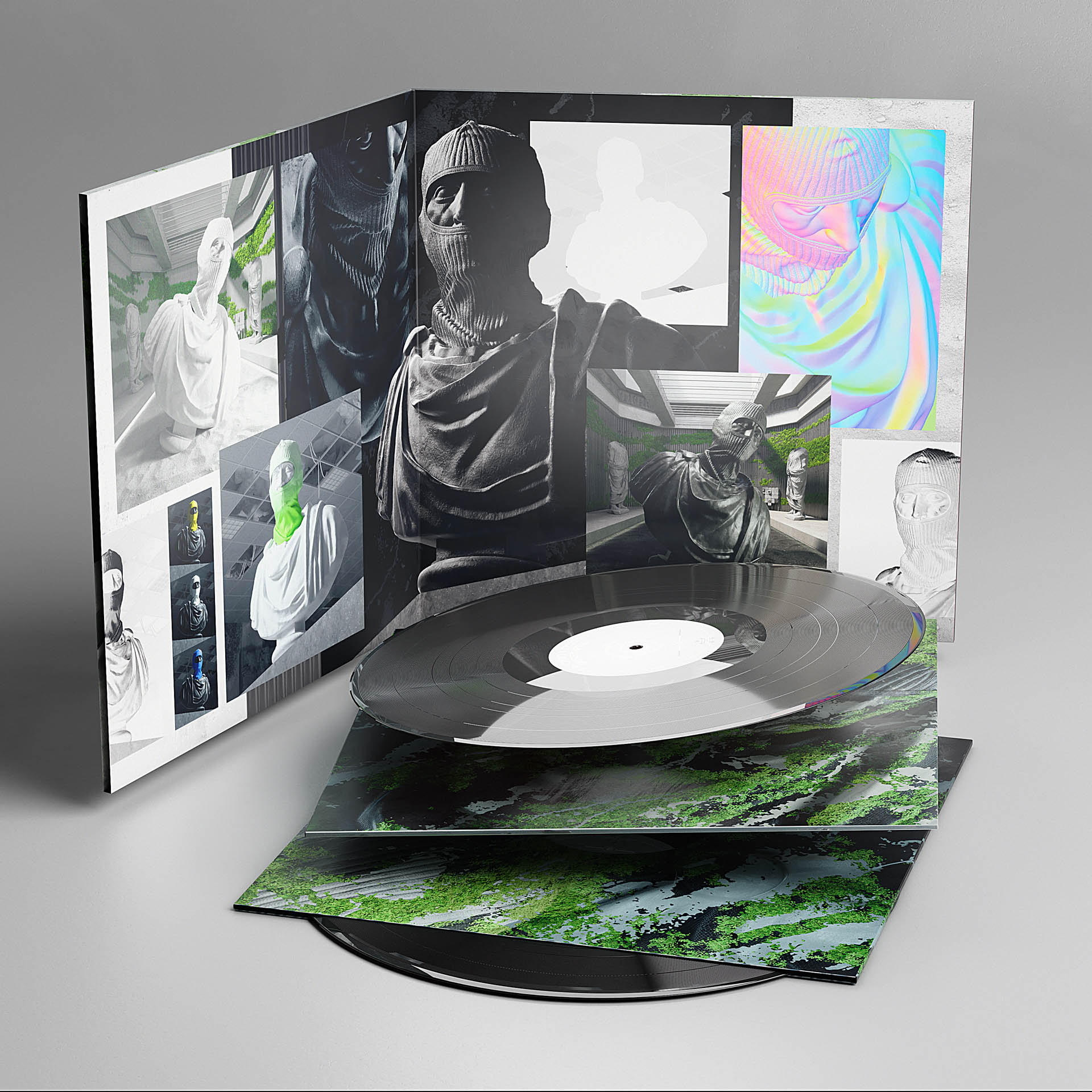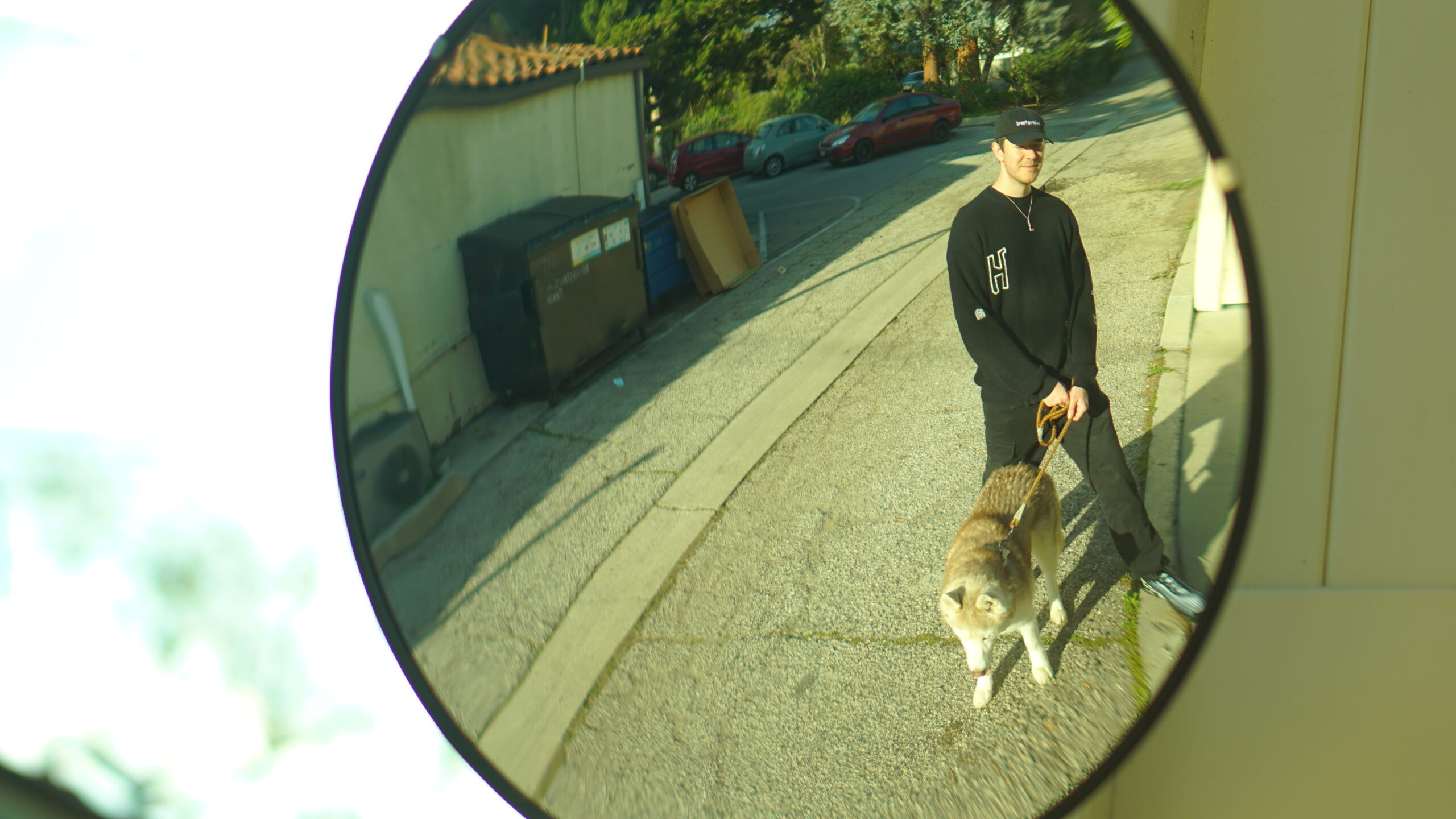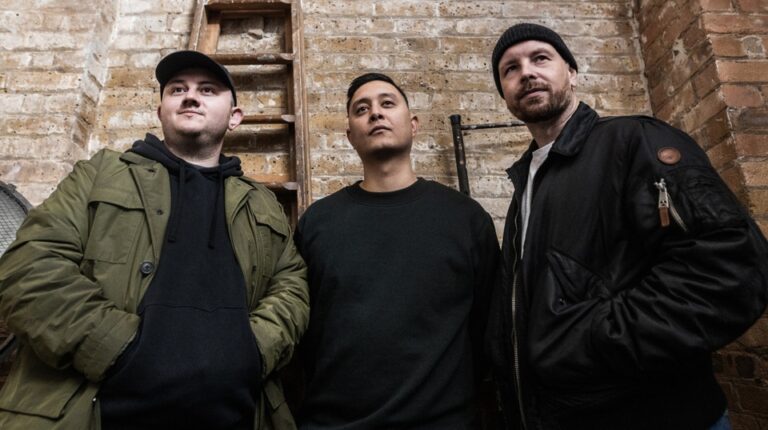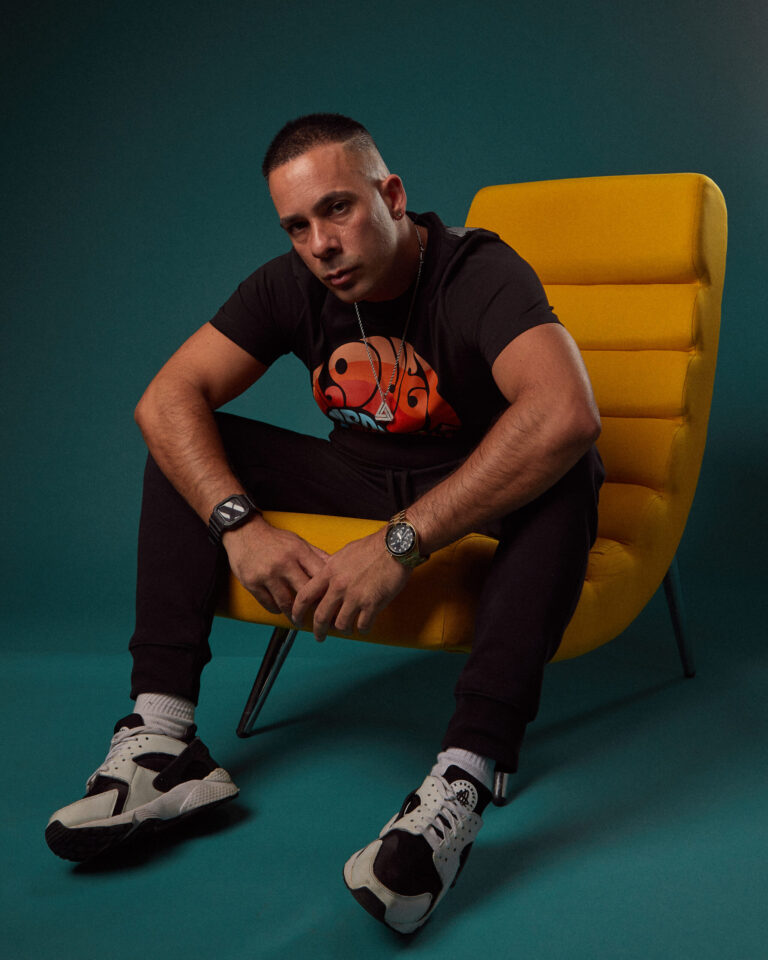He’s become known for supplying some of the most steady drum & bass rollers, as well as breaking the experimental barriers of the genre. After a decade of immersing himself across all ends of the scene, Matt Harris AKA Hyroglifics’ debut solo album is here.
Veteran drum & bass fans will recall he came into the fore as part of Critical’s innovative roster. Kicking off the Critical Binary series in 2014, and following up with the ‘No Drama’, and ‘All Talk’ EPs.
Whether it’s getting heavyweight vocalists on board, genius sampling, or pushing synths to new limits, Harris has always applied a plethora of external influences to d&b – weaving in nods to the likes of Flying Lotus, Rustie, and Hudson Mohawke, but keeping that UK bass sound at the core. This has carried through to more modern eras, with recent releases on Hooversound, 20/20, System Music, and a full-length album in collaboration with Lee Scott on Blah Records.
But he’s often kept it tight with Critical. After those first three, came five more solo EPs where he’s carved an equally strong presence as a more traditional drum & bass purveyor – with soulful tracks like ‘Make Me Feel’, rollers like ‘If I Could’ and lively ones like ‘Best Of’.
The list of labels, collabs, and impactful tunes could go on forever – but the culmination of Harris’ relentless work up to this point is ‘I’ll Wait, I Guess’.
As the title acknowledges, it’s been bubbling for a while. But the result is a medley of everything we’ve come to know about the Hyroglifics sound, and then some. After a jazzy intro featuring unconventional flows from Bristol-based Yeo Limone, Harris gets straight into a couple for the pure drum & bass heads: ‘Gas Town’ and ‘You Got It’. In the same vein, later on is the razor sharp single ‘Albany Road’.
Friends of his feature throughout – with Kenyan rapper Nah Eeto delivering a multi-lingual performance on ‘Sing To It’, backed by eerie, destructive beats. ‘Hotwire’ is a standout too, but in a completely different way. The combination of Lyza Jane’s timbre and the spaced out production leads to a sugary, but sophisticated end product.
Harris goes on to explore the depths of 140 with ‘Juggin’, finds inspiration from techno with ‘Telfar’, and reaches back to those experimental, autonomic D&B roots with the title track ‘I’ll Wait, I Guess’. It’s a 16 track journey through mellow moments, breakneck pace, dramatic highs, and intricate textures – the theme of which being the story of his career to date.
At a relatively young age, Hyroglifics’ accolades have stacked high. But the behemoth of that first album can loom larger as the clock ticks. Nevertheless, the wait was clearly worth it.
Pre-order I’ll Wait I Guess here.
How’s it feel to have the album done and dusted?
It feels good. It’s been on the cards for a while now – concepts start around mid-2020. When the pandemic hit, I decided to just go hard with writing.
But then I got sidetracked, working on projects for other people. It took a long time to come together, but I thought it was a pretty natural progression.
Yeah you’ve been in the game a long time! I was surprised to find this is your debut interview with us, too. So I’m keen to start by asking about your entry to drum & bass. How’d you first get interested?
I first heard about it while I was in school, in my final year. I was studying music and I remember finding this LTJ Bukem Fabriclive CD.
Listening to that, I was baffled by the drums. So that led me into trying to learn more about the genre – curious as to how I even make it, curious about other artists… then I found out about Hospital Records soon after, and I was on the pathway.
I remember asking my teacher how it’s made – he didn’t know. So I basically just went to school with YouTube. There wasn’t many resources at the time, it was just things like Computer Music Magazine tutorials – nothing as in-depth as there is now. But that’s basically my foray into it.
You mentioned a couple names there, can you recall any more of the first inspirations that led to your sound?
I remember getting into Danny Byrd quite a bit at first, and then I found out about Shogun Audio: Icicle, Rockwell, and especially Alix Perez. I found that was the sound I really wanted to do – that was the path that resonated with me the most.
Yeah, that was a great era. The 2010’s – when Shogun audio was really popping.
Yeah, even before that, like ’08, ’09. That’s when a couple of big albums dropped like Spectrasoul’s Delay No More. And then Alix’s album, Icicle’s album. It was a crazy era. The Way Of The Warrior series too – every track on that I was like… wow.
Nice – that was pretty much my entry into it as well. Fond memories.
Where in the timeline did you move to Bristol?
I was born in Kingston, on the edges of London. Then I moved south to the countryside when I was like six, and then to London. At the time, London was getting way too expensive, I couldn’t afford it. I had a spot come up in Bristol, and I’d always wanted to check it out, so it was perfect timing for me. Then I stayed in Bristol for four years – which has a great music scene.
Those Bristol years would’ve been pretty formative to your music, all influencing this album, surely. What made it feel like it was time to release an album?
I love the album format. For me, it’s so much more engaging. When you put on an album and listen to it start to finish, you get to appreciate all of these intricacies that get lost in other formats, like singles or EPs.
I do love an EP too, I’ve released a lot over the years. But with this, I wanted to say a bit more, and be able to delve into my production and different tempos. It doesn’t really feel like you can do that with any other format. I felt like it was the natural time for me to go on that path.
Speaking of timing – that seems to be a theme with the album title: ‘I’ll wait, I guess’. Could you explain that a little more?
It has a few meanings, really. It relates to how long I was putting off, and how sometimes it just takes a long time to finish music – to get it to a standard where I’m happy. There’s that feeling of limbo and waiting.
It’s also a nod to everything in life. You know the saying, ‘good things come to those who wait’. It’s an all-encapsulating title really.
Does that more general ‘good things come to those who wait’ meaning relate to any recent personal experience?
Nothing specific. Throughout life, it can feel like you’re just biding your time – like you’re waiting, or trying to progress to something. I’ll often feel like I have to get through this waiting period until some moment happens, or some goal is achieved.
True. This must have taken a tone of patience – the variety on here is crazy. Was it your intention to show that range?
Yeah definitely. I’ve been making a huge range of music throughout my life, and I wanted to try to showcase that more.
With drum & bass, things can get narrow minded. I wanted to show something that was outside of that. Especially because my influences are so varied – I’ll be listening to UK jazz, and then some Kendrick Lamar, and then something else. It’s a crazy melting pot. So I think it would be a shame to limit that.
But I also think from the listener’s perspective, those narrow limits have changed recently. People are becoming more open to things, as opposed to a decade or so ago.
I’ve noticed the same with recent albums – like Satl’s ‘Gloom’ or Monty’s ‘Hit The Lights’.
Thinking about those albums you mentioned at the top, like Perez’s ‘1984’ or Icicle’s ‘Under The Ice’ – they were pretty wide in terms of genre too. They must have been a source for inspiration?
Oh for sure. It just keeps it fresh and interesting. I was seeing a lot of people release D&B albums, which were… I guess, calculated. It seemed like the motivation was to see how many bangers they fit on there. I personally don’t think that’s an album format. At that point, you’re better off just releasing them as singles or EPs.
I’d agree.
You mentioned that the album concept started midway through 2020, but were any of these much older, resurrected drafts? The title track on here sounds like it’s straight from the autonomic era.
Not super old drafts, no. But ‘I’ll Wait, I Guess’ and ‘Lacklustre’ were the first initial picks for the album. I wrote about 50 demos, and then scrapped pretty much all of them. But those two were the first ones where I thought “okay, these are actually interesting and cool”. Once they got finished, I was confident enough to put them in a folder and call that the starting block.
Yeah those are two really interesting ones. You’ve always been one to experiment. How do you think your style has developed over time?
I’ve always wanted to experiment to this extent, but I never felt confident enough. Up until now, I’ve mostly just tried to do things on the edges of D&B with my Hyroglifics alias, never fully into other tempos and styles
Is there anything in your approach to production that you’ve fundamentally changed during your career?
I’d say having intention behind what I do, and integrity. This is what I now realise, compared to when I started producing.
Before, I was making stuff for the sake of making it, without much intention. Now I’m saying to myself, “this is what I want to make” – not deferring or selling-out or whatever. I’m thinking more into the concepts and the intention behind it. Even down to the individual sounds I put in.
That ability to lead with intention must come from being way more confident technically, right? You can generate the sounds you want, rather than kind of be led by happy accidents and samples and things?
Yeah, for sure. When you get to a certain stage in production, everything is malleable.
The sounds you can make are basically limitless. So it’s not like you’re trying to make a sound and focus on that. You know how to make it, but the challenge is trying to make something that fits this concept that you have.
Are there any memorable examples of this on the album?
Yeah – with ‘Lacklustre’, I definitely wanted to make something that kind of like nodded to the Brainfeeder-type sound, because I’ve been influenced by that for a long time. Also on ‘Hotwire’ – the one that features Lyza Jane – that one was written in a similar vein.
I wanted to ask you about Hotwire actually. Because that’s a super interesting direction. How’d you meet Lyza Jane and put that one together?
So I had a friend called Jack Chard, who I lived with in Bristol for a while – we worked on some stuff together. He was also producing a lot for Lee Scott, and Lee and Lyza Jane are together. So I met her through him, and I started producing for her as well.
‘Hotwire’ was originally a really simple lo-fi beat. But then she’d recorded this amazing vocal on it. Listening back I thought the instrumental was now just sounding a bit average, I knew I could take it to another level. So I just spent a few more hours, completely changing the whole thing.
I’d also just got a new Synth – this thing called Super 6 by UDO, a Bristol Company. I’d literally just got that that day, and so I went and recorded loads of things, playing around with it.
There’s a lot of interesting collaborations on here. How do you go about choosing those?
To be honest, every time I collaborate with someone, it’s just a natural thing. Usually it’s because I’m around them. It’s very casual, we’re hanging out or whatever.
It’s not often the case that I’ll actively seek someone out who I don’t have a connection with. I’ve done that in the past, but all of the features on this album were close friends that I’ve been working with. It’s like a natural, organic thing.
A couple more tracks I just wanted to mention as well were ‘Late Ones’ and ‘Telfar’. These are deviations from what we hear from you typically – what’s the inspiration behind them?
‘Telfar’ was also an early demo that was originally written with IMANU, but he wasn’t really sure about the direction of it. ‘Late Ones’ was me trying to make a bouncy, interesting house track. I’m influenced by a lot of stuff in that certain style, so I wanted to make my own take on it.
So you listen to a bit of house and techno?
A little bit. I feel like I’m more of an observer of that kind of stuff. I like little pockets here and there. I like Blawan’s sort of sound, because it’s rough and interesting. I like that kind of vibe.
You’ve definitely got the full range of UK and Bristol sounds nailed in here. How much of the LA experience has influenced it?
I finished it in September, and I moved out here in October. So it’s not had much influence. But the music I’m writing right now has definitely been influenced by The States. There’s a lot of amazing artists out here: Chee, Tsuruda. I feel like my music is definitely having some inspiration from people in the LA scene for sure.
Nice. Yeah you mentioned Brainfeeder before, and I’ve read in previous interviews that Flying Lotus and Rustie were some of your original inspirations – did that all influence the move to LA?
Partly. There’s a lot of amazing talent here, and I wanted to get surrounded by it. I also wanted to get more into producing for other people, and I thought that LA was the place to be able to spread my wings and do that. So that was kind of the secondary reason. The good weather as well, that’s a bonus!
Was there anything else that prompted the move, non-music related?
I went on tour here in May for about a month. On my last day of being in LA, I went to the beach with Anna Morgan and ONHELL, who bought a couple of friends. I met one of ONHELL’s housemates, who I thought was really cool. Then, I was playing at The Untz – which is a festival in Northern California – and she was there for that. And yeah so, long story short, I met a girl and decided to move out of here to be with her.
Nice! That’s worked out well. Sounds like you’ve got a good crew out there too. Is there anything you miss about home?
I’m quite close to my family, I definitely miss them. I used to see them quite regularly, even though I was living in Bristol.
I do miss Bristol, too. I felt like I did everything that I wanted to do there – but the community of friends I had, and the ability to be able to see everyone so easily is something I miss. You can walk anywhere in like 30-40 minutes, and there are always chance encounters. Walking down the road I might see Notion, who used to live up the road for me, or see Drone, or Hi5, or Boofy (back when he used to live in Bristol). There’s a nice community there. That was definitely the strong point.

How are you networking and collaborating in LA? You kind of touched on this with trying to produce for other artists…
Yeah I definitely want to do more collaborations with producers out here. And find a couple of sick rappers or artists that I can work with or help build up.
I love making my own music, it’s a nice outlet. But I definitely also like being able to help someone else realise their vision. It’s a different skill to master. It’s such a different challenge to have someone coming into a studio, have them sitting behind you, and you’ve got to write a beat in like ten minutes, that they’re also into. Then, you’ve got to get the best performance out of them that you can. It’s such a different challenge to literally sitting in the studio working on whatever you feel like.
You’ve grown in tandem a lot with Critical. What’s kept you so loyal to the label throughout the years?
Kasra and Critical were the first label to hear my music and actually believe in it, they could see my vision and realise they could help me succeed. I really rated that, back around 2013-14.
It was cool to get a co-sign like that – because when you start out as a producer, you’re just trying to get any kind of recognition. You want people to hear your music. So when Kasra contacted me saying “hey I heard your music, I’d love for you to do something for Critical”. It was a good feeling.
All of that helped me to return the favour and stay loyal. I think it’s also good to build your profile with one label, rather than trying to diversify yourself too much in the beginning – if you’re releasing on loads of different labels, it might water things down a bit.
I know what you mean – it’s good to become sort of synonymous with a strong label and get that mutual benefit of association.
Yeah it just helps solidify yourself a bit more.
What’s the biggest thing you’ve learnt working with Kasra and Critical?
Well I started out as a producer, and I had to get into DJing to earn money through playing shows. Working with Critical really helped step up how I was DJing. I was listening to all their sets, thinking they’re at a crazy level, and it inspired me a lot to focus on reaching that. As opposed to just focussing on production and thinking I can go to shows and press play. Making an actual set, figuring things out and treating it like a separate craft.
Ok, last question. With the album out there, what’s next for you in 2023? What are the goals?
I’ve been writing a lot of music that’s kind of off the back of that album – using a similar concept. I just want to keep writing, and then I can work things out and consolidate a couple of new releases. I don’t have any super solid plans yet. I’m just enjoying writing and seeing what happens.
Using those foundations of all the different styles in the album to springboard into different genres?
Yeah, exactly that!
Follow Hyroglifics: Soundcloud/Spotify/Instagram


